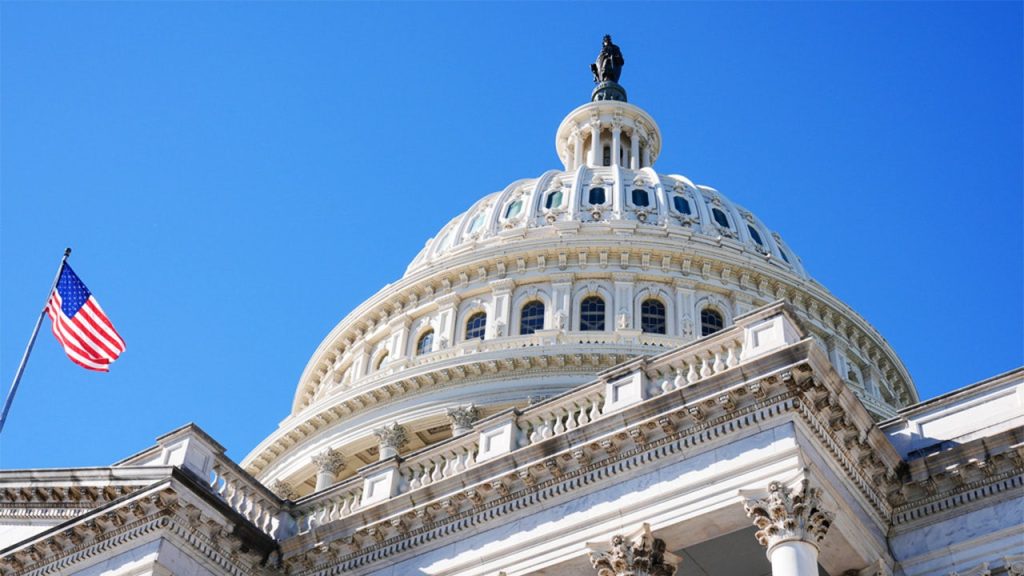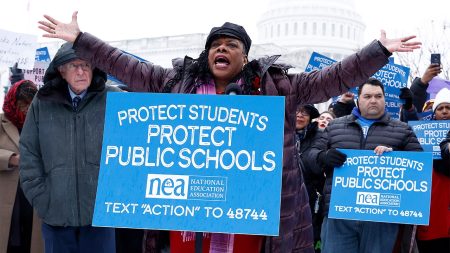Senate Democrats Yield, Government Reopens as Trump Prepares for Historic Foreign Policy Move
In a dramatic shift that highlights the complex dynamics of Washington politics, Senate Democrats have retreated from their previous position, paving the way for an end to the government shutdown that had threatened to cause significant economic disruption. The resolution came after intense pressure from both sides of the aisle, with economists warning that a prolonged shutdown could have potentially slashed quarterly economic growth by half, according to Treasury Secretary Bessent. This development coincides with preparations for a historic diplomatic event at the White House, as former President Trump announced plans to host Syrian leadership—marking a significant potential shift in U.S. foreign policy in the Middle East. Adding to the political turbulence, Trump has also issued full pardons to several key allies, including Rudy Giuliani, Mark Meadows, and Sidney Powell, in a move that has generated considerable controversy across the political spectrum.
The government funding measure that ultimately passed faced criticism from multiple angles, with Senator Bernie Sanders notably calling out eight fellow Democratic senators for what he described as a “very, very bad vote.” This internal party discord reflects broader tensions within the Democratic coalition as they navigate competing priorities. Representative Abigail Spanberger emphasized that the party’s recent electoral victories should not be used to justify specific positions on the government shutdown, suggesting a more nuanced approach is needed to address the nation’s fiscal challenges. Meanwhile, the Republican establishment faces its own internal debates, with Senator Ron Johnson warning that the GOP could find itself in “big trouble” if it ignores what he characterized as a Democratic plan to eliminate the filibuster—a procedural tool that has long shaped the Senate’s legislative process.
Beyond the immediate political maneuvering, longer-term challenges loom for the nation. Experts had cautioned that flight reductions were likely to continue—or potentially worsen—if the shutdown had persisted, highlighting the real-world implications of political gridlock on transportation infrastructure. Separately, analysts have pointed to Iran’s “water bankruptcy” as a factor that could weaken both the regime and its nuclear program, suggesting that environmental challenges may reshape geopolitical realities in ways that traditional diplomatic approaches have failed to achieve. These developments underscore how domestic policy decisions increasingly intersect with international relations in a complex global landscape.
Cultural flashpoints continue to emerge alongside political battles, reflecting deeper societal tensions. A medical school recently pulled a gender medicine course after pressure from LGBTQ advocacy groups, while “Handmaid’s Tale” author Margaret Atwood shared that she has received more criticism from the political left than the right for not “preaching the sermon” in her literary work. California Governor Gavin Newsom made headlines by suggesting Democrats need to “own up” to having ceded ground on addressing what he described as a crisis affecting men and boys—a rare acknowledgment from a progressive leader about gender-related challenges facing males. These cultural debates often mirror and amplify the polarization evident in formal political structures.
In the business and lifestyle realm, a celebrity chef made waves by refusing to accommodate diners using weight loss drugs, reflecting growing tensions between traditional culinary culture and health trends. Wellness experts have begun promoting “dark showering”—a practice they claim could help reduce stress and improve sleep quality—as Americans increasingly seek non-pharmaceutical approaches to mental health. These consumer-level trends run parallel to broader economic concerns, with restaurant owners expressing frustration about payment systems that create social pressure for customers to leave larger tips. Such everyday frustrations reflect how economic policy decisions and technological changes ultimately shape daily experiences for ordinary Americans.
Sports provided a momentary distraction from political tensions, with Trump becoming the first sitting president since 1978 to attend a regular-season NFL game, while football fans witnessed a stunning performance by the Houston Texans backup quarterback, who led a remarkable 26-point fourth-quarter comeback against the Jacksonville Jaguars. Meanwhile, the political landscape continues to evolve, with billionaire Miriam Adelson voicing support for Elise Stefanik’s New York governor campaign launch—a signal of how influential donors are positioning themselves ahead of future electoral contests. As commentators like Newt Gingrich and others offer competing visions for addressing challenges from prison reform to economic policy, the nation remains deeply divided about both the problems it faces and the potential solutions, all while citizens navigate the personal impacts of these larger political battles.







